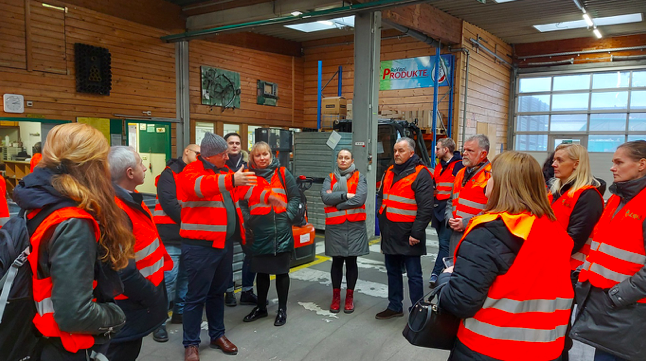The European Union (EU) has placed strong emphasis on enhancing higher education and research capacities through the European Universities initiative. As part of the European strategy for 2023, this initiative aims to foster transnational alliances between higher education institutions to create a harmonized and interconnected European higher education, unbound by location and country borders while offering flexibility in the design of the curriculum so that students can choose the topics they wish to study. The overall aim is to equip scientists and researchers with an all rounded and transdisciplinary set of skills that meet the demands and requirements of the economies and industries of today and the future.
The goals of EEA & Norway Grants align closely with the European Universities initiative, creating synergies for collaboration through allocating resources to capacity-building projects, which contribute to upskilling the project partners involved.
Within the context of the European Universities initiative, the EEA & Norway Grants can play a crucial role in supporting projects that enhance research infrastructure, foster international partnerships, and promote the development of core skills for researchers. By investing in research capacity and mobility, such grants enable higher education institutions to strengthen their research profiles and establish long-term transnational alliances.
Environmental issues including climate change, pollution and resource depletion are among the main challenges faced globally today, with organisations and governments calling for action. The shift to circular economy practices has been identified as a key factor to address such issues. In a circular economy, products are made to play a role in the economy for as long as possible, through reuse, repair, recycling and repurposing of materials in this way minimising or eliminating waste while conserving natural resources.
Through the EEA and Norway Grants, transnational collaborations and knowledge exchange that provide a stepping stone towards tackling important issues are made possible through projects such as that of Circular Based Waste Management. The project consists of partners from three municipalities in three countries and a waste management centre (Lithuania, Estonia and Ukraine), as well as an expert partner from Norway. Tha main focus is knowledge sharing and learning from best circular practices in waste management strategies based on recycling, reusing, and reducing waste.
This collaboration and studies undertaken during the project have enhanced the knowledge of municipal officials while cultivating sustainable thinking among them and the local populations especially among youth, through communication and the involvement of local schools in activities planned within the project.
Through the study tours and webinars, the project has given the municipal officials the opportunity to be exposed to the full spectrum of topics of managing waste in a circular manner, enhancing their understanding and capacity on the subject. Topics covered range from design thinking for circularity of products and packaging, through to legislation, research and materials as well as recycling, waste handling, digitalisation and communication with the public.
Activities involving the public, such as sorting and recycling workshops, creative competitions, lecturesand even encouraging high school students to attend a university courseon Circular Economy have played key roles in nurturing circular mindsets.
In a similar fashion, in terms of research, building transnational alliances through active collaboration and sharing expertise, resources, and facilities, institutions can foster a vibrant academic environment that encourages cross-border collaboration and promotes the acquisition of diverse skills.
Through offering interdisciplinary courses and research opportunities, higher education institutions can equip researchers with the ability to approach complex problems from multiple angles. This interdisciplinary thinking promotes creativity, innovation, and a holistic understanding of societal challenges. Additionally, collaboration with industry partners facilitates the acquisition of entrepreneurial skills and enhances researchers’ ability to translate their knowledge into practical solutions, fostering a culture of innovation and research commercialization.
The European Universities initiative and EEA & Norway Grants can offer significant opportunities for building long-term transnational alliances between higher education institutions and developing core skills for researchers. By encouraging collaboration, sharing resources, and emphasizing interdisciplinary approaches, this holistic approach fosters a vibrant research and learning environment that equips scientists with the necessary skills to address complex societal challenges such as that of establishing a circular economy, promotes sustainability, and strengthens the overall research landscape in Europe.
Maritsa Kissamitaki – Circular Based Waste Management http://circular-waste.eu/


